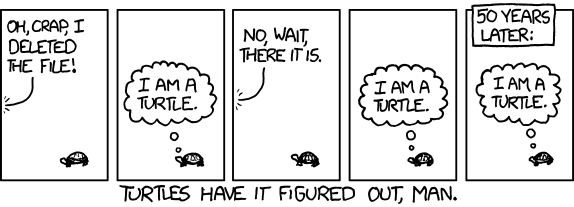Sanguk started to get nervous. “Perhaps this man has a statue hidden in his mind after all. What is he going to promise them and what is he going to demand from them?”
As he made his way to the patients’ area along with the rest of the staff at the appointed time for the patients’ gathering, Sanguk entertained endless doubts about the director’s sudden change in attitude. It was natural for a person to think at one time or another of having a statue.
Perhaps it is natural to have a statue hidden deep inside one’s head. Then it becomes a matter of how well one hides it. It’s a matter of how one resists the fantasy of a statue. More difficult is how one would go about tearing down this desire for a statue. The director couldn’t wait to deliver his inaugural speech but one couldn’t blame him for that. It didn’t matter what kind of promises he offered them. What was important was how closely his statue was related to what he intended to promise them and how wisely he would suppress his own impulses to reveal his wish to stand victoriously in front of the patients. What he wanted to promise should come after he was aware of his own ambitions. But Sanguk couldn’t trust him.
Yi Chong-jun, Your Paradise. Green Integer, 2004.
Things posted in 2016
Trojans
Our efforts are those of men prone to disaster;
our efforts are like those of the Trojans.
We just begin to get somewhere,
gain a little confidence,
grow almost bold and hopeful,when something always comes up to stop us:
Achilles leaps out of the trench in front of us
and terrifies us with his violent shouting.Our efforts are like those of the Trojans.
We think we’ll change our luck
by being resolute and daring,
so we move outside ready to fight.But when the great crisis comes,
our boldness and resolution vanish;
our spirit falters, paralyzed,
and we scurry around the walls
trying to save ourselves by running away.Yet we’re sure to fail. Up there,
high on the walls, the dirge has already begun.
They’re mourning the memory, the aura of our days.
Priam and Hecuba mourn for us bitterly.C.P. Cavafy, Collected Poems. Translated by Edmund Keeley and Philip Sherrard. Edited by George Savidis. Revised Edition. Princeton University Press, 1992.
Troianos
São nossos esforços, os dos infortunados;
são nossos esforços como os dos troianos.
conseguimos um pouco; um pouco
levantamos a cabeça; e começamos
a ter coragem e boas esperanças.Mas sempre surge alguma coisa que nos pára.
Aquiles junto do fosso à nossa frente
surge e com grandes gritos assusta-nos. —São nossos esforços como os dos troianos.
Cuidamos que mudaremos com resolução
e valor a contrariedade da sorte,
e estamos cá fora para lutar.Mas quando vier o momento decisivo,
o nosso valor e a nossa resolução perdem-se;
a nossa alma fica alterada, paralisa;
e em redor das muralhas corremos
à procura de nos salvarmos pela fura.Porém a nossa queda é certa. Em cima,
nas muralhas já começou o pranto.
Choram pelas memórias e os sentimentos dos nossos dias.
Amargamente choram por nós Príamo e Hécuba.C.P. Cavafy, Poemas e Prosas. Tradução de Joaquim Manuel Magalhães e Nikos Pratsinis. Relógio de Água, 1994.
Τρώες
Είν’ η προσπάθειές μας, των συφοριασμένων·
είν’ η προσπάθειές μας σαν των Τρώων.
Κομμάτι κατορθώνουμε· κομμάτι
παίρνουμ’ επάνω μας· κι αρχίζουμε
νάχουμε θάρρος και καλές ελπίδες.Μα πάντα κάτι βγαίνει και μας σταματά.
Ο Aχιλλεύς στην τάφρον εμπροστά μας
βγαίνει και με φωνές μεγάλες μάς τρομάζει.—Είν’ η προσπάθειές μας σαν των Τρώων.
Θαρρούμε πως με απόφασι και τόλμη
θ’ αλλάξουμε της τύχης την καταφορά,
κ’ έξω στεκόμεθα ν’ αγωνισθούμε.Aλλ’ όταν η μεγάλη κρίσις έλθει,
η τόλμη κι η απόφασίς μας χάνονται·
ταράττεται η ψυχή μας, παραλύει·
κι ολόγυρα απ’ τα τείχη τρέχουμε
ζητώντας να γλυτώσουμε με την φυγή.Όμως η πτώσις μας είναι βεβαία. Επάνω,
στα τείχη, άρχισεν ήδη ο θρήνος.
Των ημερών μας αναμνήσεις κλαιν κ’ αισθήματα.
Πικρά για μας ο Πρίαμος κ’ η Εκάβη κλαίνε.K.Π. Kαβάφη, τα Ποιήματα 1897-1933, Ίκαρος 1984.
You’ll come to when you lean your face over the nose will fall with it – that is know as death. You’ll come to angular rages and lonely romages among Beast of Day in hot glary circumstances made grit by the hour of the clock – that is know as Civilization. You’ll roll your feet together in the tense befuddles of ten thousand evenings in company in the parlor, in the pad – that is know as, ah, socializing. You’ll grow numb all over from inner paralytic thoughts, and bad chairs, – that is known as Solitude. You’ll inch along the ground on the day of your death and be pursued by the Editorial Cartoon Russian Bear with a knife, and in his bear hug he will poignard you in the reddy blood back to gleam in the pale Siberian sun – that is known as nightmares. You’ll look at a wall of blank flesh and fritter to explain yourself – that is know as Love. The flesh of your head will recede from the bone, leaving the bulldog Determination pointing thru the pique-jaw tremulo jaw bone point – in other words, you’ll slobber over your morning egg cup – that is known as old age, for which they have benefits. Bye and bye you’ll rise to the sun and propel your mean bones hard and sure to huge labors, and great steaming dinners, and spit your pits out, aching cocklove nights in cobweb moons, the mist of tired dust at evening, the corn, the silk, the moon, the rail – that is known as Maturity – but you’ll never be as happy as you are now in your quiltish innocent book-devouring boyhood immortal night.
Jack Kerouac. Doctor Sax. 1977.

